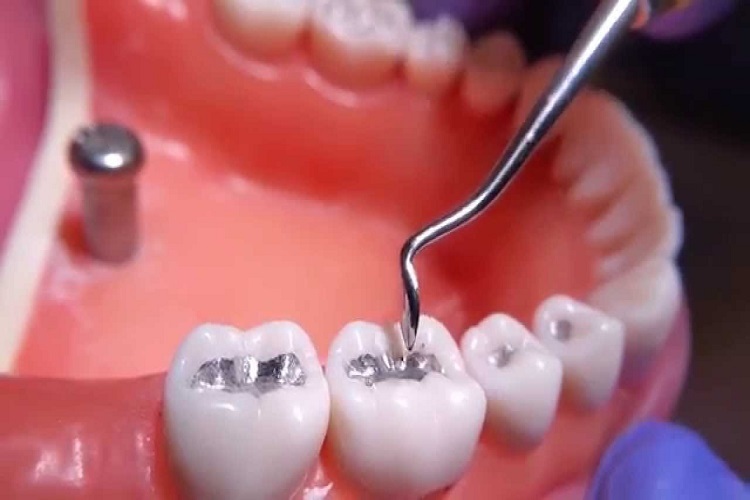Dental amalgam has been used extensively to fill in the cavities caused by tooth decay. It is a combination of several materials, including elemental or liquid mercury, and a powder alloy containing copper, tin, and silver. The chemical properties of the mercury interact with and bind together the alloy particles to form a stable structure.
The appointed practitioner first drills the tooth and removes the decay. He/ she then shape the resultant gap for placing the dental amalgam. Next, under proper safety conditions, of course, the practitioner mixes liquid mercury with encapsulated powdery alloy. The aim is to have a sort of putty. This putty is cautiously positioned in the gap where over time, it hardens.
According to the FDA, dental amalgams inflict a wide range of risks. They even claimed that dental implants may be a better option. Well, before arriving at a decision, make sure to be aware of both the sides of the coin.
Table of Contents
The Benefits
- Dental amalgams have been in the healthcare sector for almost 150 years, probably because they are incredibly strong and last for a prolonged period. Yes, unlike the other kinds of fillings, they are not prone to breakage.
- They are considered best for patients who have immense decay and need rigorous treatments immediately. Dental amalgams also seem like a viable choice if the mouth has too much moisture. Moisture makes it tough for other materials like the resins to attach to the tooth.
- Finally, yet importantly, dental amalgams are quite cheap. Anyone can afford them without any hassle. The placement is also fairly simple and is done within a single session.
The Problems
As specified above, dental amalgams contain a specific amount of mercury. Since mercury is believed to be poisonous to human health, naturally, there were concerns about potential mercury poisoning from the amalgams. A majority of the scientific researches found no such relationship between the fillings and signs of mercury poisoning. But, a small group of people did report allergic reactions.
Chronic fatigue syndrome is another important side-effect of mercury exposure from dental amalgams. The most common symptoms of this condition are muscle pain, headache, impaired memory, sore throat, chest pain, vision disturbances, and night sweats.
A naturopath can help with fatigue. He/she prescribes natural medications for managing the symptoms and boosting the overall immunity system. Naturopathy coupled with a proper lifestyle and diet helps you feel good once again.
Who are at Risk?
- Women who are planning on getting pregnant
- Pregnant women and their fetuses.
- Women who are breastfeeding.
- Children who are below six years.
- People who already have neurological disorders.
- People who have dysfunctional kidneys.
- People who are sensitive to mercury and the other components of dental amalgam.
The resilience of any tooth restoration procedure depends on a wide range of factors other than the filling material. For the best oral health, make sure to brush your teeth twice a day, floss to extract out the debris stuck in between the teeth, and rinse your mouth after every meal. Also, visit a dentist after every six months.










Comments